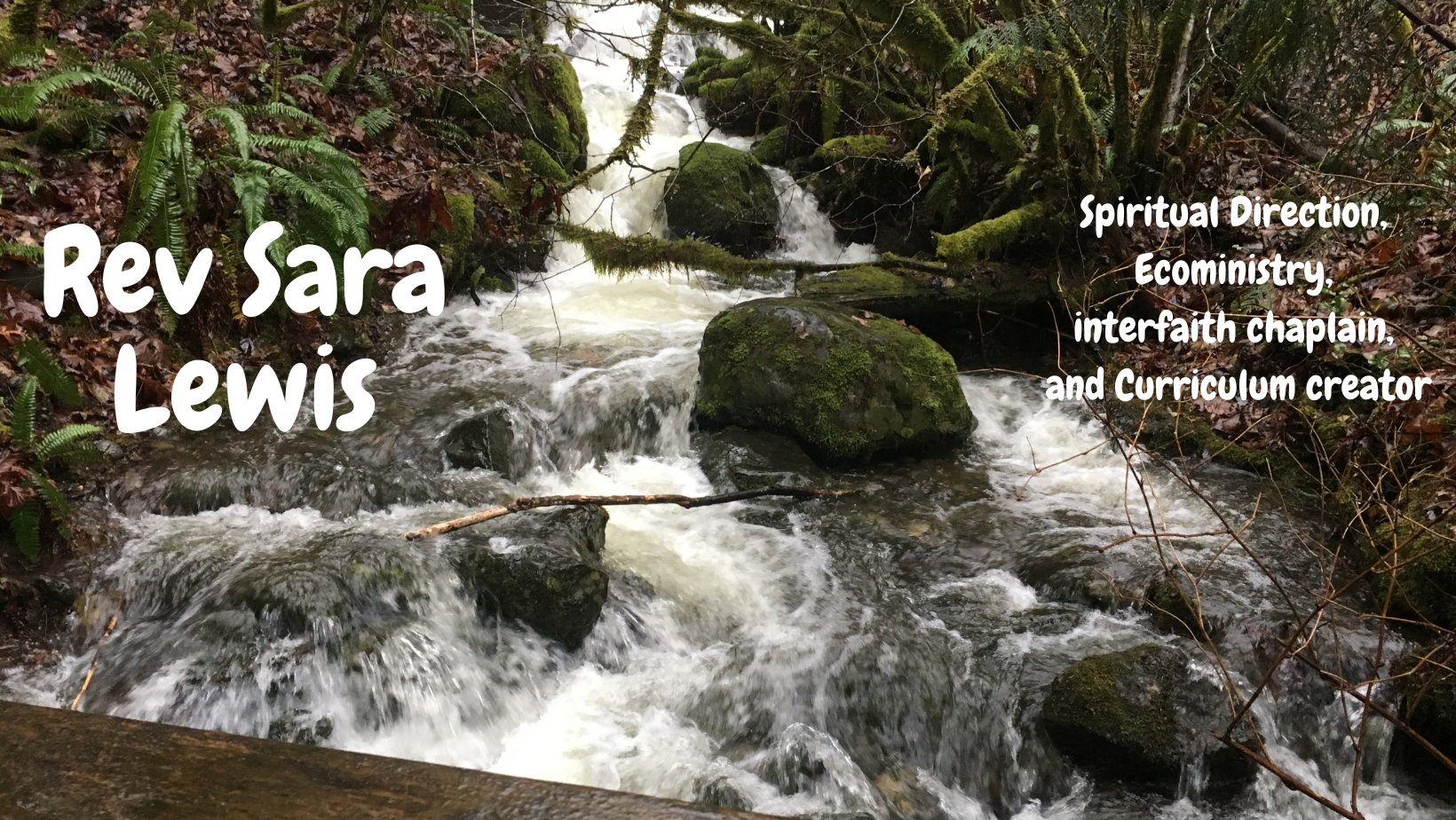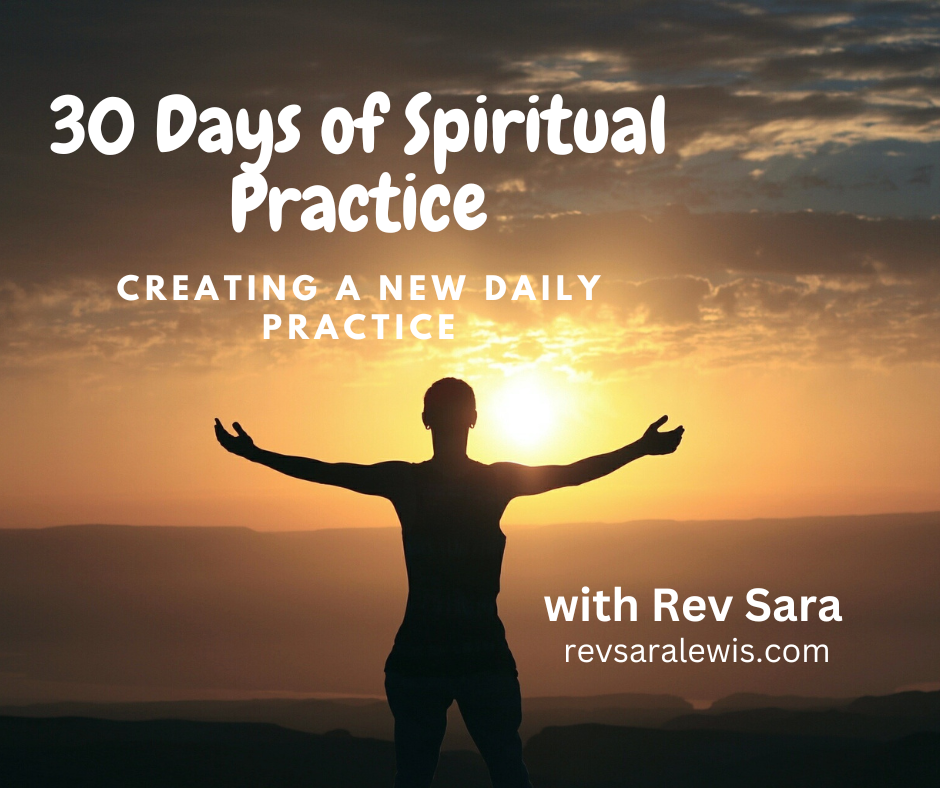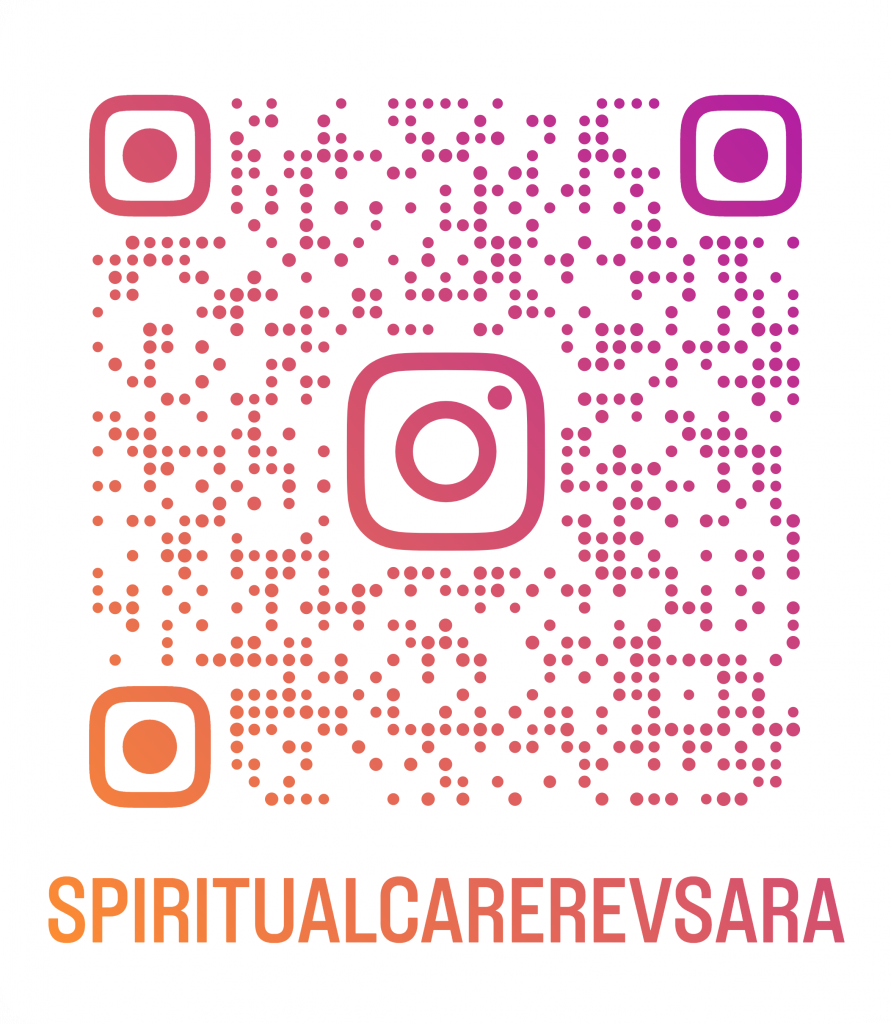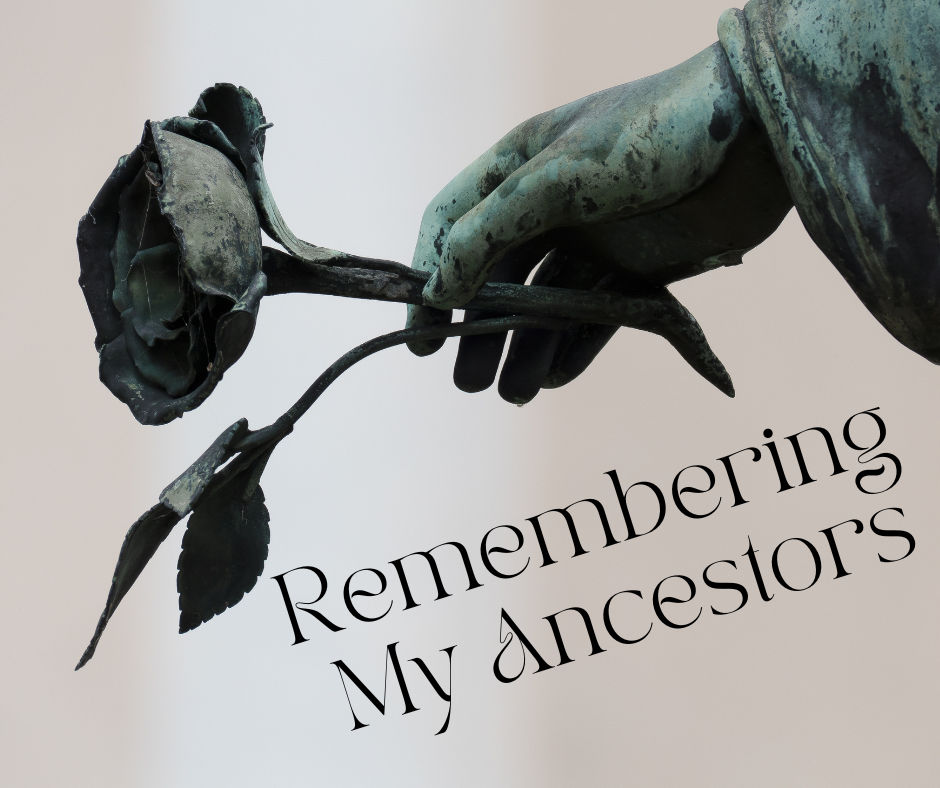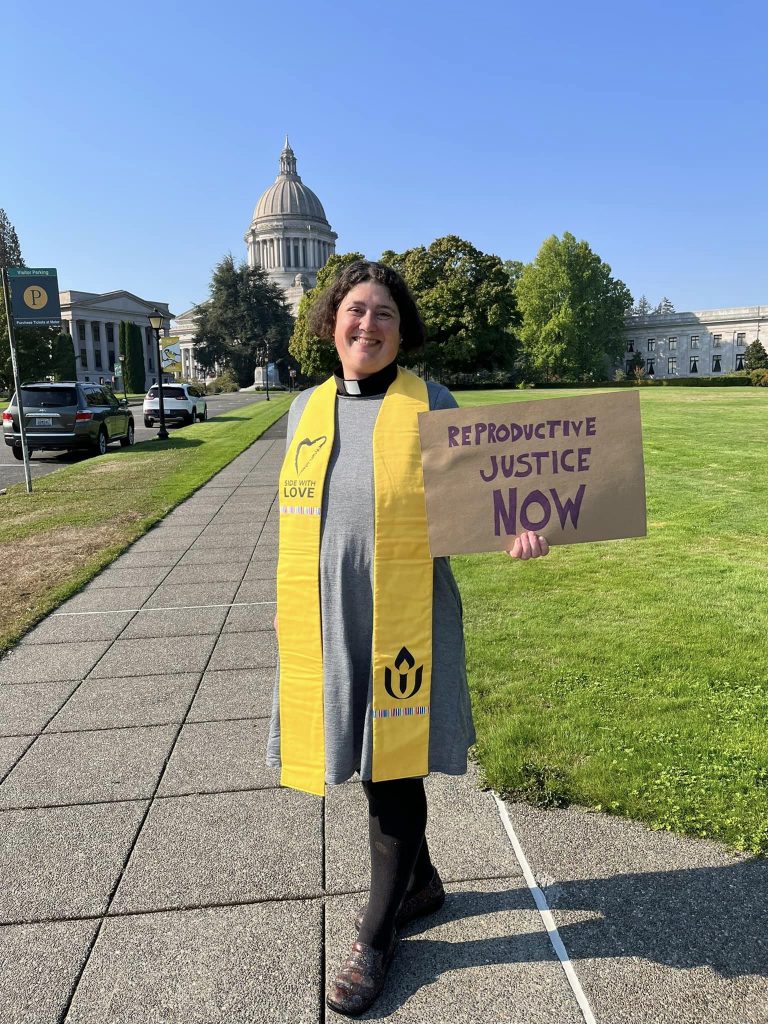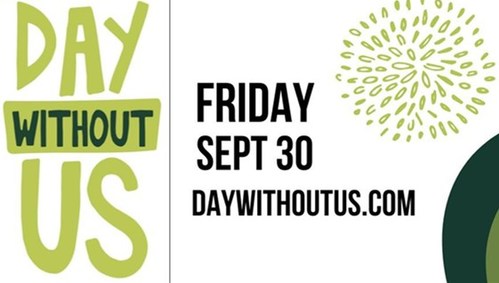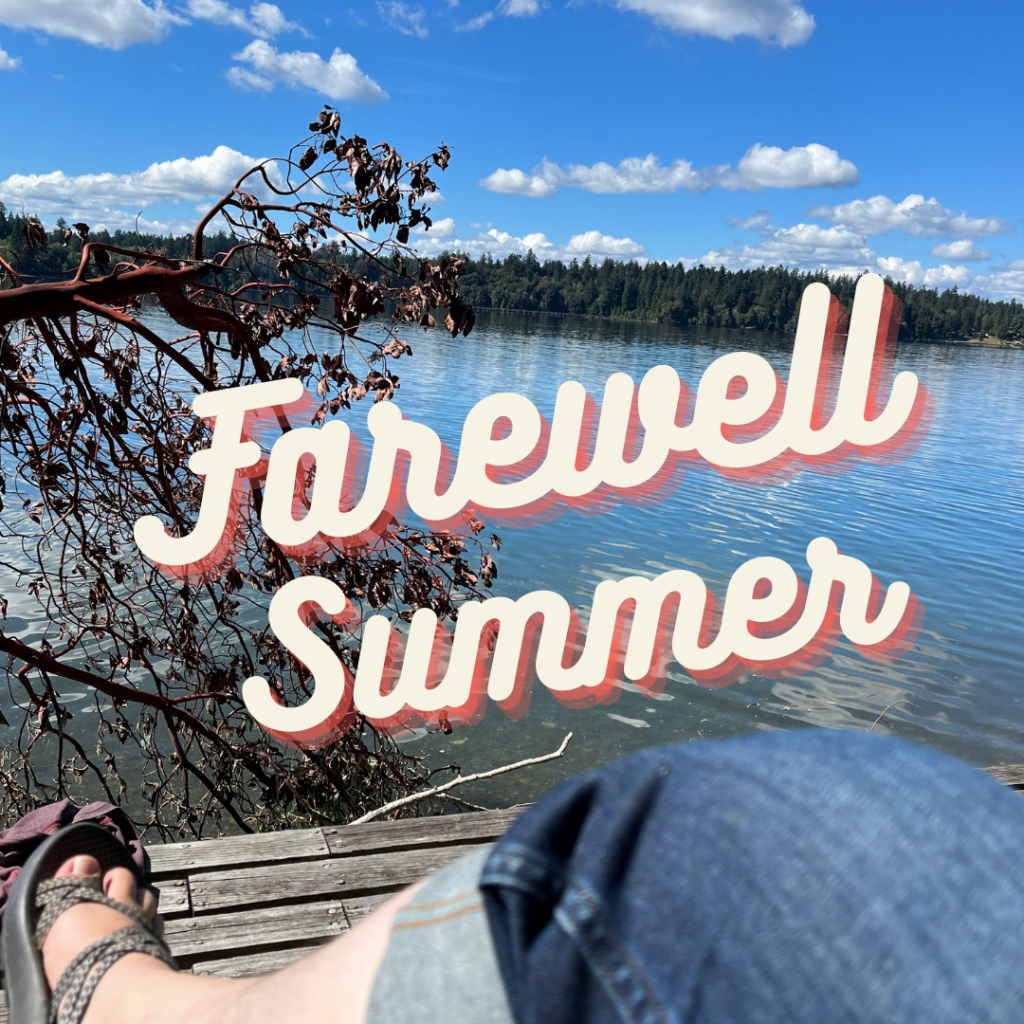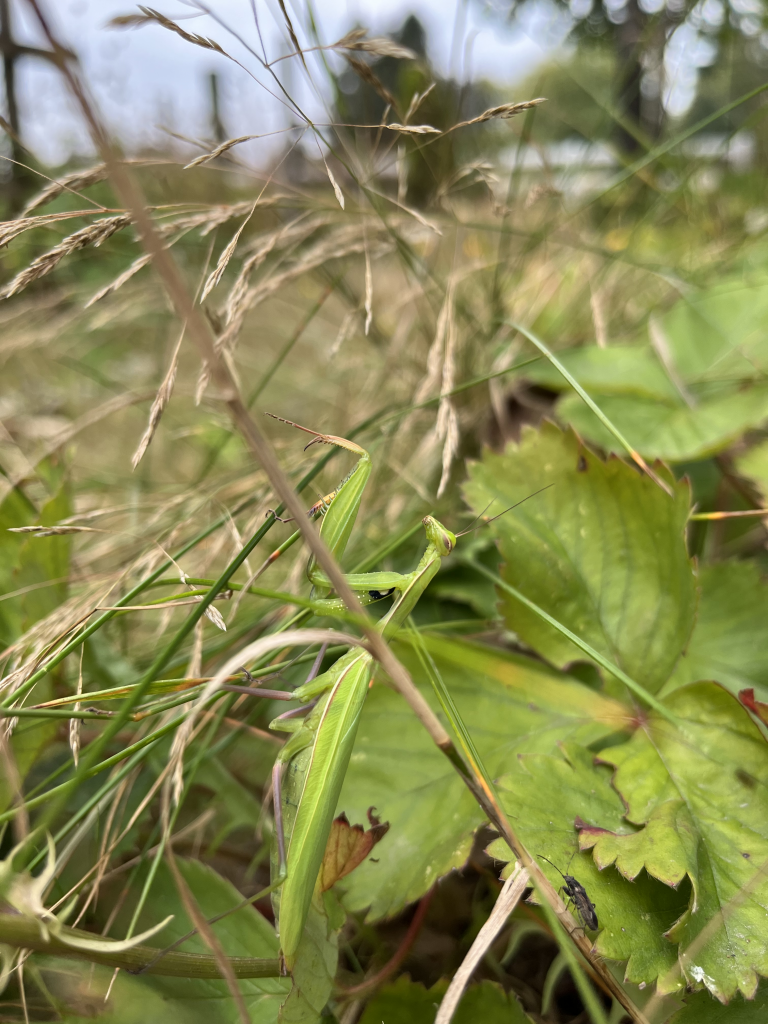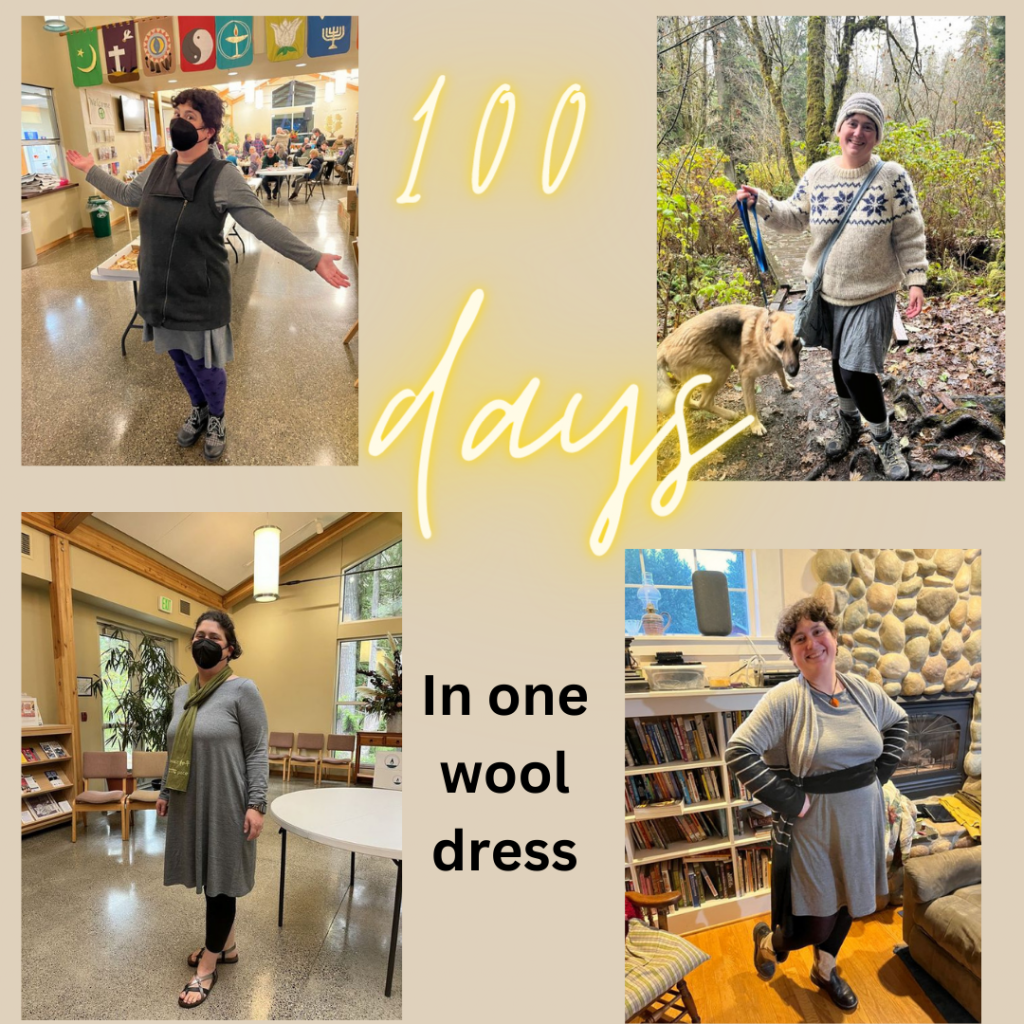
Today is my 100th day in a row wearing the same grey wool dress. You may have some questions – like what? Why? This is a challenge created by the clothing company Wool&, and officially to do the challenge and get the gift certificate prize at the end you have to do it in one of their pieces. But really, I wanted to do it because I had seen others take on the challenge and it seemed intriguing. What would I learn about my relationship to clothing and fashion and style if I wore one dress for 100 days straight?
And I’ve learned so much. There are the predictable things, and I’ve also learned some unexpected things. Overall I think my approach to my wardrobe is going to change in a big way, which of course has implications of all sorts from budget to space and organization to environmental impact. Clothing may not be our greatest impact on the world around us (I believe housing, transportation, and food are still more impactful but don’t quote me on that) – but the way our society consumes fast fashion and clothing does have a huge impact on the world around us. So, to my learnings:
Practical Learnings
Wool is a magical substance! Warm, cozy, resists smells and dirt, easy to care for and durable. I don’t find wool itchy, so lucky me.
Less clothing = less laundry and that is a very good thing. I do have a washing machine now (we tried the experiment of going 6 months of handwashing everything) but I still don’t have a dryer and just reducing the amount of laundry that needs doing is a plus for me and for the environment. The dress was handwashed once a week, then laid flat to dry on the top of our drying rack. It dried overnight just fine every time.
Our grandparents were right about aprons and overalls and what not. Since I had to keep the dress clean and serviceable, I was much more careful about putting on aprons to cook and clean in and putting on my overalls and rubber boots over the dress to work in the yard. Those items took the brunt of the dirt of life, but they don’t need to stay pretty and so I also didn’t have to wash them that often either.
I can fit a lot more scarves in my closet than I can dresses, and I can sew a lot more special occasion belts from a bit of fabric than I can make special occasion dresses. Accessories just cost less and more fit into your space.
Yes, I can hike and garden and do basic chores in a dress. Leggings under the dress were great, and tights with bike shorts also worked if I wanted to worry less about modesty when being active.
Style learnings
I’ve never considered myself a particularly fashionable or stylish person, although I have always enjoyed having fun with my shoes. But this challenge has really changed that. I had FUN playing with how to style the dress. I started to really enjoy accessorizing. That’s going to stick with me.
On the subject of style, I learned that accessories rule! That one simple grey dress could go in so many different directions with different accessories. And accessories can have their own accessories – I was stumped at first on scarves and shawls and then I discovered shawl pins and brooches! So much fun to mess about with.
Accessories and styling also allow for seasonal whimsy. The dress became a Christmas dress with the addition of a cloth obi-style belt sewn out of Christmas fabric. It was a Halloween dress with a black belt and a spiderweb necklace. And it takes less resources to make and less space to store a holiday accessory than it does a whole holiday dress.
Personal, Emotional, Spiritual, and Social/Justice Learnings
The process of taking a picture of myself every day for the challenge also pushed some body acceptance learning for me. If you look at my full 100 days on pinterest, you may notice me getting sillier and sillier with the poses as the 100 days went on. I also just was getting more comfortable with the fact that hey, this is me, and this body is what it is. Some big healing work still to do there, but the journey is ongoing.
There are ways to be femme that have nothing to do with sexy or cute or really anything designed to attract or placate the hetero-patriarchal gaze. It was amazingly refreshing to find myself feeling really powerful or elegant or grounded while still full femme and not copying a masculine look in order to feel power or authority.
There’s also nothing wrong with being cute or sexy or whatever. Clothing is fun, self-expression is fun, it’s not always armor that you need in order to keep yourself safe in the world. Safety should not have to be earned through clothing choices.
I expected I’d learn how to be minimalist by doing this, but I didn’t. I am realizing I am just not a minimalist personality. But I did realize that minimalism and sustainability/responsibility are totally different creatures. I can choose to consume material goods in sustainable and responsible ways and still not have a capsule wardrobe.
I’m really glad I did this challenge, I think it has genuinely reshaped my relationship with my clothing and how I dress my body. Tomorrow I will wear a pair of jeans again, for the first time in a long time. But I expect this dress will stay an active part of my life for a long time to come.
